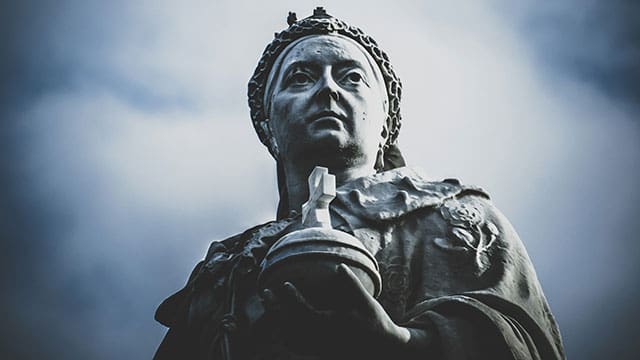Victoria Day reminds us that we all benefit from a constitutional monarchy, including its contributions to human rights and stability
 This Victoria Day, the usual suspects will decry the holiday – in the name of decolonization. However, as long as people say Canada’s existence makes the world a better place, they should not deplore how this country was created.
This Victoria Day, the usual suspects will decry the holiday – in the name of decolonization. However, as long as people say Canada’s existence makes the world a better place, they should not deplore how this country was created.
The land that became Canada has been populated for thousands of years, but it only exists as a united sea-to-sea country because it was part of Queen Victoria’s Empire. We owe nearly all of our political ideals and principles to Britain, whether through the actions of those who came to Canada from across the Atlantic or the enduring influence of their ideas.
Start with her crown. Entire books have been written about the benefits of a constitutional monarchy rather than a republic. One need only compare the constitutional monarchies of resource-rich Canada, Australia, and New Zealand to the republics of even more resource-rich South Africa, India, and Zimbabwe to see which system is preferable for guaranteeing human rights, democracy, stability, and prosperity.
 Photo by K. Mitch Hodge |
| Related Stories |
| Queen Victoria’s foreign policy man was larger than life
|
| Why historical figures deserve understanding, not cancellation
|
| Erase our history, erase ourselves
|
Having a politically weak but symbolically powerful monarch as the head of state within a Westminster-style democracy has proven to be an effective barricade against populist demagogues. To deny that this is a tremendous advantage for Canada is to revel in cognitive dissonance.
Ordered liberty is our inheritance. Have we always lived up to this ideal? Of course not, as perfection is an absurd standard. Yes, there were slaves in Canada, and Britain participated in the Atlantic slave trade. However, slavery was at odds with the British ideal of liberty – which differed markedly from its continental European counterparts.
Who ended slavery? Britain did more than any other European country to abolish it, launching a multi-decade naval campaign from 1808 to 1867 to eradicate the practice. The Royal Navy’s anti-slavery efforts utterly crippled the Atlantic slave trade, surpassing even Abraham Lincoln’s achievements during the American Civil War.
We forget that, during the height of the British Empire, anti-colonial campaigns were seldom driven by opposition to British moral and political principles. Instead, they arose because colonial administrators withheld these principles.
Take 19th-century Nova Scotia. Its political struggle to end arbitrary colonial rule and establish responsible government was not a fight against Britain. In the words of its leader, Joseph Howe: “I wish to live and die a British subject, but not a British subject only in name.”
Canada’s other great reformers of that era, like Robert Baldwin or Louis-Hippolyte Lafontaine, merely wanted to enjoy the same rights as those living in Britain, not to sever their home from Britain itself.
Our fellow former colonies, Australia and New Zealand, share similar attitudes and expectations for their governments for the same reasons. Like Canada, they have enjoyed stable and peaceful histories since gaining independence.
The same cannot be said for the former Spanish Empire in South America or the former French possessions in Algeria or Vietnam. With few exceptions, the former Spanish and French colonies have been plagued by authoritarian regimes, cults of personality, republican dictatorships, and political violence.
As imperial empires declined in the 20th century, the most successful leaders of the decolonized world understood this reality. Lee Kuan Yew of Singapore and Jawaharlal Nehru of India recognized that they did not need to erase all traces of British colonial rule to thrive as newly independent states. In fact, upon Yew’s passing in 2015, a journalist for Singapore’s The Straits Times noted that Yew “believed that the best example of a secure nation is one which does not run away from its history.”
Canada has not been a British colony for a long time. It is a modern, independent state with its own unique characteristics, debates, and challenges. Nevertheless, we cannot deny that our expectations, sensibilities, and attitudes emerged from our membership in the British Empire.
Taken to its logical conclusion, a decolonized Canada means the erasure of everything bestowed by Britain.
The French do not hesitate to assert their Gallic heritage, and the Italians do not refrain from appreciating their Roman heritage. Victoria Day should serve as a yearly reminder of our rich heritage as Canadians, not the least of which is our inheritance as British North Americans.
Truly, without Queen Victoria’s Britain, we would not recognize Canada.
Geoff Russ is a research associate with the Aristotle Foundation for Public Policy, writer, and former journalist.
For interview requests, click here.
The opinions expressed by our columnists and contributors are theirs alone and do not inherently or expressly reflect the views of our publication.
© Troy Media
Troy Media is an editorial content provider to media outlets and its own hosted community news outlets across Canada.


